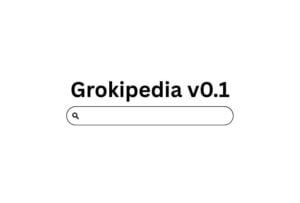Generative AI in Academic Publishing: A Double-Edged Sword?
Artificial Intelligence (AI) is changing the world, and the field of academic publishing is no exception. Generative AI, a type of AI that can create content like a human, is causing a stir among academics. While it has the potential to revolutionize academic publishing, it also raises some serious concerns.
Benefits of Generative AI
Generative AI can help users write in English fluently, making academic publishing more diverse. It can also save time by summarizing data and generating articles, allowing researchers to publish their studies faster. This means they can spend more time on new experiments and applying for grants.
However, not everything about generative AI is rosy. There are concerns about of use of generative AI in academic publishing.
Issues with use of Generative AI in Academic Publishing
Accuracy and Plagiarism
There are concerns about accuracy and plagiarism. AI can produce text that sounds correct but is actually wrong, leading to incorrect information being published. It can also copy existing work word for word, which could lead to unintentional plagiarism. There’s also the worry that AI might use ideas from published work but not cite them correctly.
Ethical Issues
Ethical issues are another concern. Generative AI could produce biased and discriminatory results because of the language used in the sources it was trained on. This could lead to unfair or harmful content being published.
Concerns about Credibility
Credibility is also at stake. While generative AI can make the writing process more efficient, it could also drop fake references, make up information, or repeat problematic content from the internet. This could seriously damage the credibility of scientific writing if it ends up in published articles.
Concerns about Responsibility and Accountability
Finally, there’s the question of responsibility and accountability. Who is responsible for the work if it’s produced by AI? Some journals have banned non-human authors, emphasizing the importance of accountability for the work.
Closing Remarks
Academic researchers are both excited and worried about the use of generative AI in academic publishing. They’re looking for guidance from their institutions and other stakeholders on how to use AI tools and what role publishers can play in protecting their published research.
Some universities are already providing guidance. Cornell University, for example, emphasizes the importance of understanding the limitations of generative AI and identifies specific concerns related to data privacy and the use of AI tools in research. The University of North Carolina at Chapel Hill advises students to ask their instructors before using generative AI in their coursework and emphasizes that students are responsible for the writing they submit.
In conclusion, generative AI presents both opportunities and challenges in academic publishing. It has the potential to streamline the writing process and speed up innovation, but concerns about accuracy, ethical implications, and credibility need to be carefully addressed. As we continue to explore and develop AI, we must remember to put human dignity and responsibility first. We must ensure that AI serves humanity, not the other way around.
For more intriguing insights into other STEM-related topics, visit ENTECH. Explore our digital magazine dedicated to inspiring teenagers and young adults to pursue their passions in science, technology, engineering, and mathematics.






